Uyghur leaders joined Forum 2000 in Prague, highlighting genocide and transnational repression while calling for stronger global solidarity to protect Uyghur refugees and defend democracy.
The 29th Forum 2000 Conference, held in Prague under the theme “Defending Democracy in a Time of Turmoil,” brought together global leaders, intellectuals, and civil society representatives to discuss the threats facing democracy worldwide. Uyghur leaders and advocates also took part in the high-level gathering, where issues related to genocide and human rights violations in East Turkistan were raised as part of the broader conversation on authoritarianism and transnational repression.
During the panel titled “Transnational Repression on the Uyghur Diaspora and How to Help Uyghur Refugees Around the World,” moderated by researcher Dr. Ondřej Klimeš of the Oriental Institute at the Czech Academy of Sciences, speakers Enver Can (President of the Ilham Tohti Initiative), Zumretay Erkin (Vice President of the World Uyghur Congress), Nyrola Elima (researcher and human rights activist), and Rayhan Asat (U.S.-based human rights lawyer) discussed how Uyghurs abroad continue to face harassment, surveillance, and intimidation orchestrated by Beijing. The panel examined how democratic governments can better protect Uyghur refugees from Chinese coercion and uphold international asylum mechanisms.
Enver Can, emphasized the importance of collective action and democratic solidarity to counter transnational repression targeting Uyghurs. He reflected on the session as an opportunity to strengthen cooperation between civil society and democratic governments in protecting those who have fled persecution.
Nyrola Elima, drew attention to ongoing challenges Uyghur refugees face, citing examples such as mass deportations from Thailand, misuse of Interpol Red Notices, and recent detentions of Uyghurs in Türkiye. She underlined the urgent need for coordination among international partners to prevent further forced returns.
Rayhan Asat, contributed to two different sessions, where she linked the Uyghur genocide to broader global crises such as environmental degradation in Tibet, calling attention to how authoritarian systems intensify both human and ecological harm.
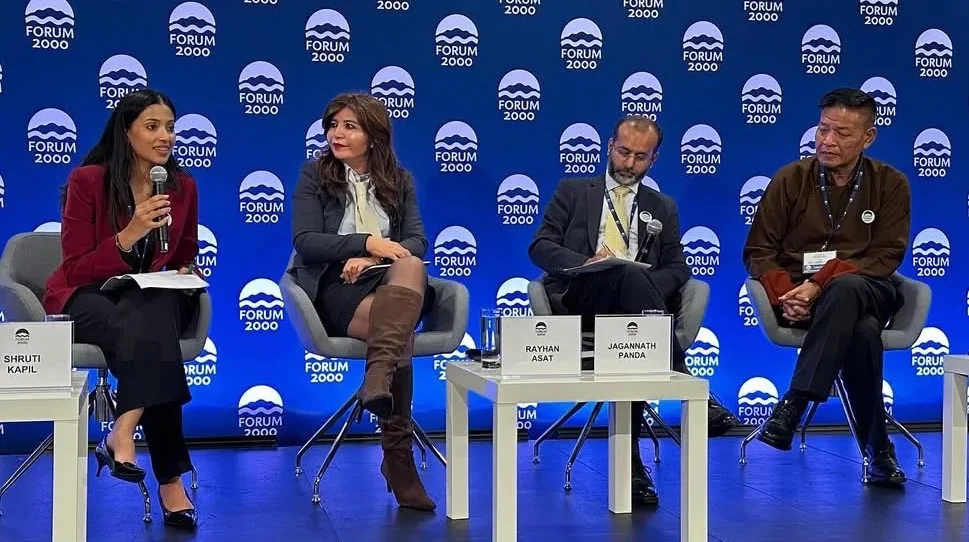
Zumretay Erkin, participated in multiple sessions, including “How to Help Uyghur Asylum Seekers in Europe.” She discussed the widespread statelessness, expired travel documents, and constant fear of surveillance that continue to affect Uyghur asylum seekers worldwide. In her reflections on the conference, she noted that this year’s Forum came at a critical time, as democratic backsliding and growing cooperation among authoritarian regimes pose new dangers to vulnerable communities.
In the conference, Rushan Abbas (Executive Committee Member of WUC and President of Campaign for Uyghurs) took part in the session “The Power of the Powerless.” Recalling her first appearance at Forum 2000 nearly two decades ago, she reflected on meeting the late Václav Havel and said she remains committed to exposing China’s genocidal crimes against her people.
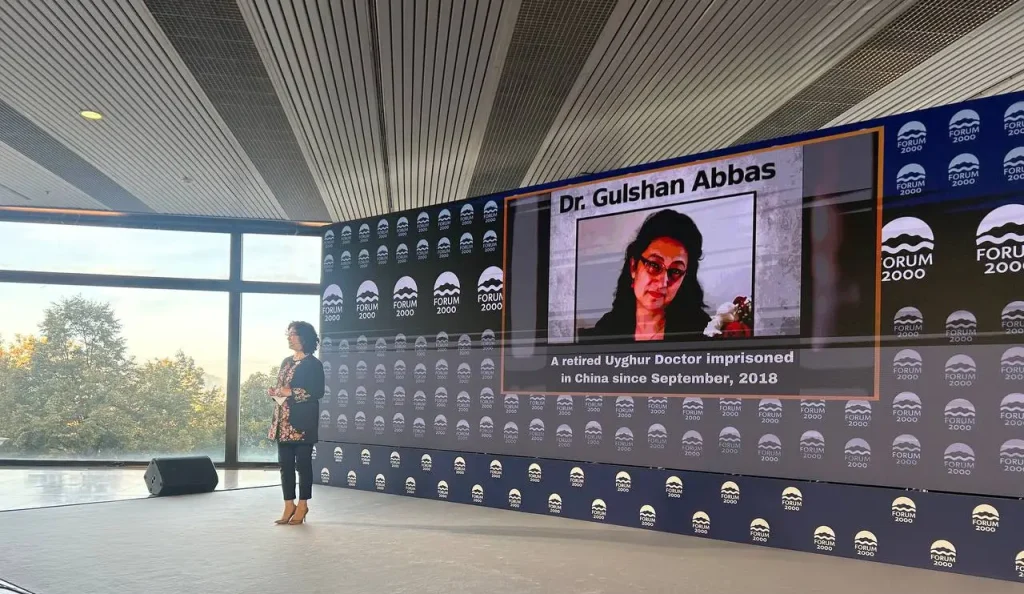
Uyghur leaders also met briefly with Czech President Petr Pavel and Forum 2000 Executive Director Jakub Klepal, expressing appreciation for the Czech Republic’s consistent support for human rights and democracy.
Throughout the conference, Uyghur participants engaged with prominent figures including Prague Deputy Mayor Zdeněk Hřib, former NED President Carl Gershman, Tibet’s Sikyong Penpa Tsering, and former Sikyong Dr. Lobsang Sangay. These exchanges underscored the shared determination of democratic movements to resist authoritarian expansion and defend human rights globally.
Founded by Václav Havel and Nobel laureate Elie Wiesel, the Forum 2000 Conference continues to serve as one of the most significant platforms for democratic dialogue and global cooperation. This year’s discussions once again affirmed that the struggle for democracy and the defense of persecuted peoples — including the Uyghurs — are inseparable parts of the same cause.
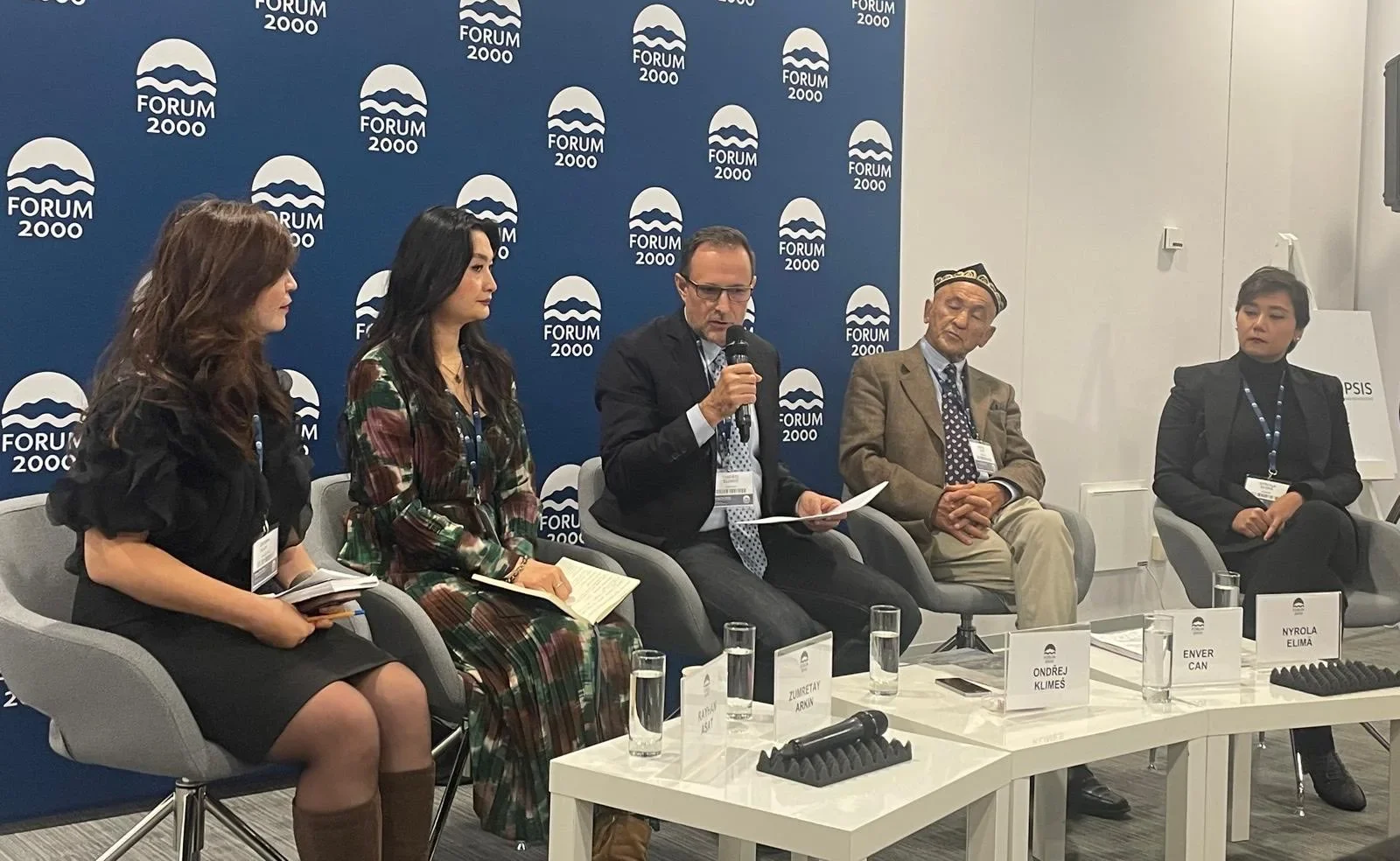
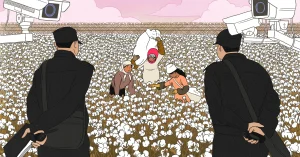

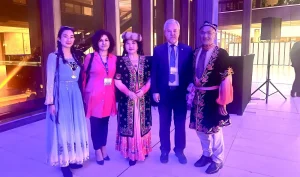


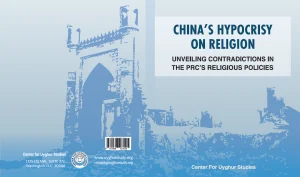
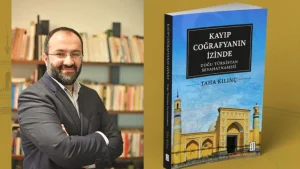
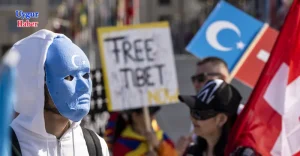
Be First to Comment